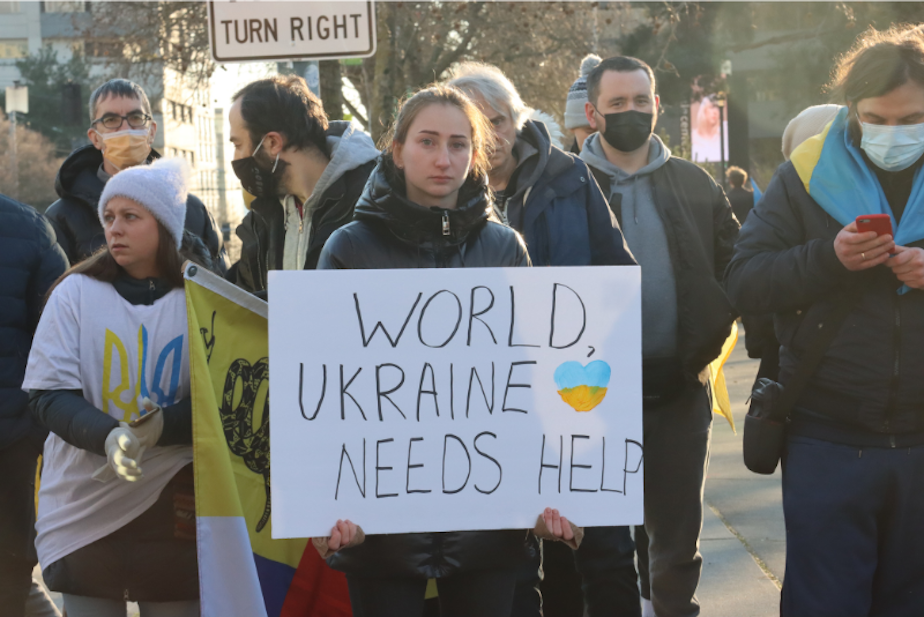The refugee double standard

Ukrainian refugees are being welcomed across Europe and here in the US. The response speaks to the dire need of the moment.
And it's also not the response people fleeing other recent wars have received.
The United Nations High Commissioner for Refugees estimates that over 2 and a half million Ukrainians have fled their country in the face of increasingly brutal violence by Russia. The organization says that number could soon reach as many as 4 million.
European countries have stepped up to welcome the fleeing refugees --
The European Union voted, for the first time, to implement its Temporary Protection Directive. It requires members of the EU to provide immediate international protection to Ukrainians, and offers health care as well as permission to reside and work in any European nation. The directive will last for a year, and can then be extended for up to three years.
Similarly, here in the U-S, President Biden said in a statement on Friday that the country would welcome refugees from Ukraine.
The response speaks to the dire need of the moment.
Sponsored
And it's also not the response people fleeing other recent wars have received.
We've seen a lot of examples in recent weeks of how the media and political leaders compare what's happening in Ukraine with what's happening in places such as Iraq or Afghanistan. Bulgarian Prime Minister Kiril Petkov recently said, "These people are intelligent, they are educated people... This is not the refugee wave we have been used to, people we were not sure about their identity, people with unclear pasts, who could have been even terrorists."
Naomi Ishisaka is the Seattle Times' assistant managing editor for diversity, inclusion and staff development, and a columnist for the paper. She wrote about the double standard that exists between Ukrainian refugees, and those from other countries.
She spoke to Soundside host Libby Denkmann.




